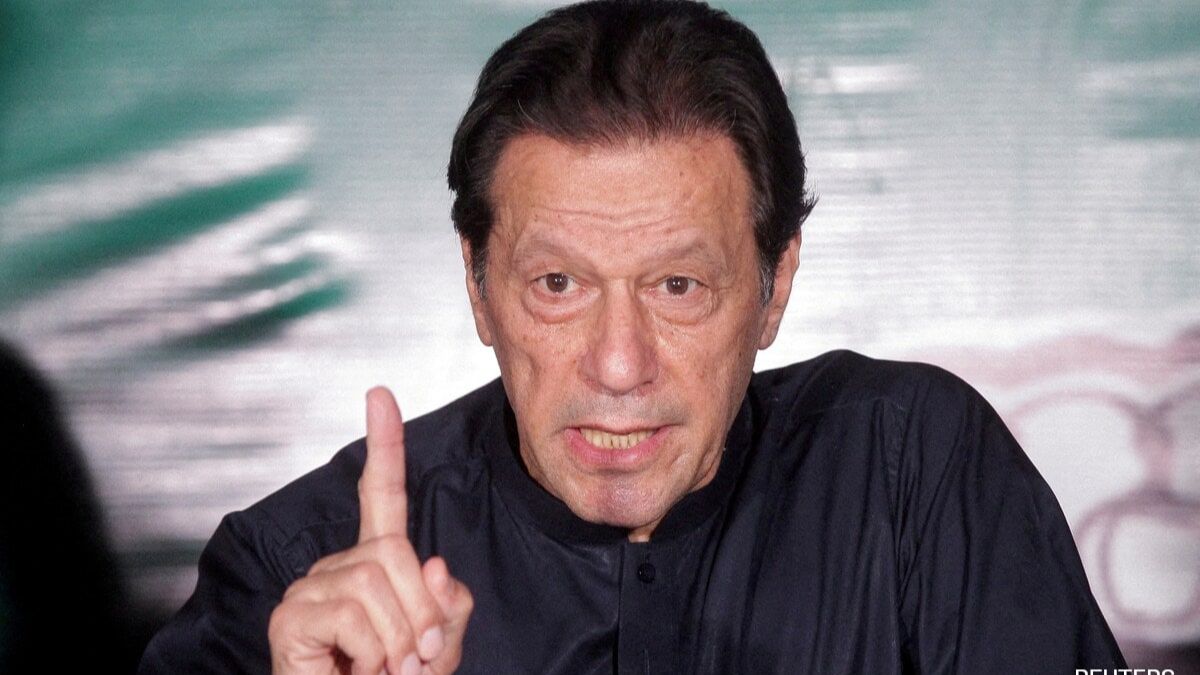Former Pakistani Prime Minister Imran Khan lamented the present state of affairs in the country where political leaders like him languish in jail and said all that is left for the powerful military leadership was to “murder” him.
Khan, a 71-year-old former cricketer-turned-politician, expressed concern over the plight of political leaders like himself languishing in jail. In a column written for the UK’s ‘Daily Telegraph’ newspaper from Adiala Jail in Rawalpindi, where he is detained on disputed corruption charges, he reiterated his previous assertion that if any harm comes to him or his wife, General Asim Munir—the Chief of Army Staff—would bear responsibility.
The founder of the Pakistan Tehreek-e-Insaf (PTI) party emphasized that Pakistan, facing financial challenges, is at a “dangerous crossroads,” with the government being perceived as a “laughing stock.” Khan accused the military establishment of exerting all possible efforts against him and claimed that the only remaining action for them would be to resort to violence against him.
“I have stated publicly that if anything happens to me or my wife (Bushra Bibi), Gen. Asim Munir will be responsible. But I am not afraid because my faith is strong. I would prefer death over slavery,” he says.
The powerful army, which has ruled Pakistan for more than half of its 75-plus years of existence, has wielded considerable power in matters of security and foreign policy. However, the military has denied meddling in the country’s politics.
Khan warned that the state was treading the same path it trod in 1971, when it lost East Pakistan, now Bangladesh.
“At the same time, it is seeing an upsurge in terrorism and a growing alienation in Balochistan where the issue of enforced disappearances is growing in severity. On Pakistan’s borders, India has already admitted to undertaking assassinations inside of Pakistan and the international border with Afghanistan remains volatile,” he notes.
Impact Shorts
More ShortsKhan notes the military establishment’s expectation of “unquestioning support” from the US, in return for the provision of access to airspace and related facilities to the US for military purposes, has been punctured after the publication of the latest US State Department’s Country Reports on Human Rights Practices, which highlights the many human rights violations in Pakistan.
“With an economy in crisis, spiralling prices and a people politically angry at having their electoral mandate stolen and being economically beleaguered, the state stands isolated,” he writes.
Khan hailed the “democratic revenge” of the February 8 general election, during which people came out and “voted overwhelmingly” for candidates supported by his party.
“Unfortunately, instead of accepting the people’s mandate, the military establishment went into a fit of rage and electoral results were manipulated to bring into power the losers. The same vote tampering was seen in the recent by-elections,” he notes.
The PTI founder also praised the six “brave judges” of the Islamabad High Court who have written a letter to the Chief Justice of Pakistan highlighting instances of harassment and blackmail including of their families by intelligence agencies.
“This is unprecedented in our history – although, informally, many knew what was happening to the senior judiciary but for such a letter to have come from these judges shows the level of despair, anger and frustration,” he writes.
With inputs from agencies.


)

)
)
)
)
)
)
)
)



